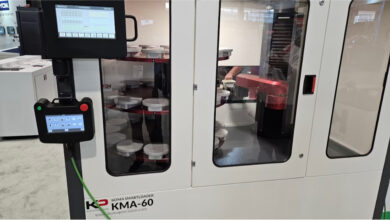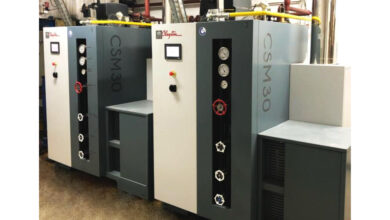Facilities Management Solutions for the Manufacturing Sector

In the manufacturing sector, where efficiency and safety are paramount, facilities management plays a crucial role in ensuring that production processes run smoothly and safely. Effective facilities management services help to optimise operations, reduce downtime, and maintain compliance with safety standards, contributing significantly to the overall productivity and profitability of manufacturing operations. This article explores specialized facilities management strategies and solutions tailored for the manufacturing industry.
Optimizing Plant Layout and Design
Efficient Space Utilization
The layout of a manufacturing facility can greatly impact operational efficiency. Facilities management services work to optimize the flow of materials and people by strategically arranging equipment and workstations. This minimizes unnecessary movement and handling, which can reduce fatigue and time wastage, thereby boosting productivity.
Modular and Flexible Designs
Adapting modular and flexible design principles allows facilities to be reconfigured as needed without significant disruptions to production. Facilities management professionals design these spaces to accommodate changes in manufacturing processes or shifts in production needs, ensuring that the facility can evolve with the company’s requirements.
Enhancing Equipment Efficiency
Preventive Maintenance Programs
Robust preventive maintenance programs are essential in the manufacturing sector to minimize equipment breakdowns and extend the lifespan of machinery. Facilities management services schedule regular inspections and maintenance activities, which are designed to catch and fix small issues before they lead to major failures.
Energy Management
Efficient energy use is another key area of focus. Facilities managers implement systems to monitor and control energy consumption, such as automated HVAC systems, energy-efficient lighting, and machinery that reduce the overall energy footprint of the facility while cutting costs.
Safety and Compliance
Rigorous Safety Protocols
Manufacturing facilities often involve hazardous materials and processes that can pose risks to health and safety. Facilities management develops and enforces rigorous safety protocols to protect workers. This includes regular safety drills, clear signage, proper personal protective equipment (PPE), and emergency response plans.
Compliance with Regulations
Facilities management ensures that manufacturing operations comply with all relevant local and international regulations, including environmental standards, building codes, and labor laws. This not only protects the company from legal issues but also reinforces a culture of safety and responsibility.
Implementing Smart Factory Solutions
Integration of IoT Technologies
The integration of Internet of Things (IoT) technologies plays a pivotal role in modern manufacturing facilities management. IoT devices can track machine performance, predict maintenance needs, and even control environmental conditions, providing a continuous stream of data that facilities managers use to optimize operations.
Data-Driven Decision Making
With the data collected from IoT devices, facilities managers employ sophisticated analytics to make informed decisions about facility operations. This includes everything from adjusting production schedules based on machine availability to reallocating resources during peak times to maximize productivity.
Workforce Management
Ergonomic Work Environments
Ensuring that the work environment is ergonomically designed is crucial in manufacturing. Facilities management services assess workstations and implement ergonomic solutions to reduce strain and injury, thereby enhancing worker comfort and productivity.
Training and Development
Facilities management also oversees training programs that not only focus on job skills but also on safety practices. Regular training ensures that all employees are aware of the best practices and safety measures they need to follow, which is essential for maintaining a safe working environment.
Sustainable Practices
Waste Management
Effective waste management strategies are vital in manufacturing, where waste can be substantial. Facilities management develops and implements waste reduction and recycling initiatives that not only help the environment but also reduce disposal costs.
Environmental Sustainability Initiatives
Facilities managers also drive sustainability initiatives, such as reducing water usage, implementing cleaner production techniques, and using sustainable materials. These practices not only help the manufacturing sector comply with environmental regulations but also improve the company’s reputation with consumers and stakeholders.
Conclusion
Facilities management services are integral to the manufacturing sector, providing strategic solutions that enhance efficiency, ensure safety, and promote sustainability. Through careful planning and the implementation of advanced technologies, facilities managers help manufacturing facilities meet their production goals while maintaining high standards of safety and environmental responsibility. As manufacturing continues to evolve with technological advancements, the role of facilities management will become even more critical, adapting to new challenges and continuing to drive industry innovations.





